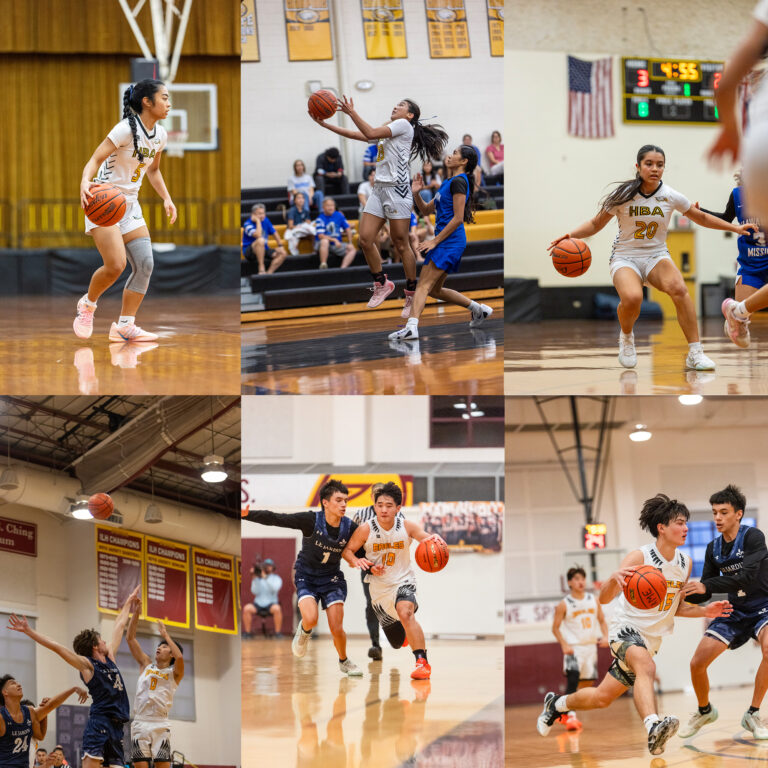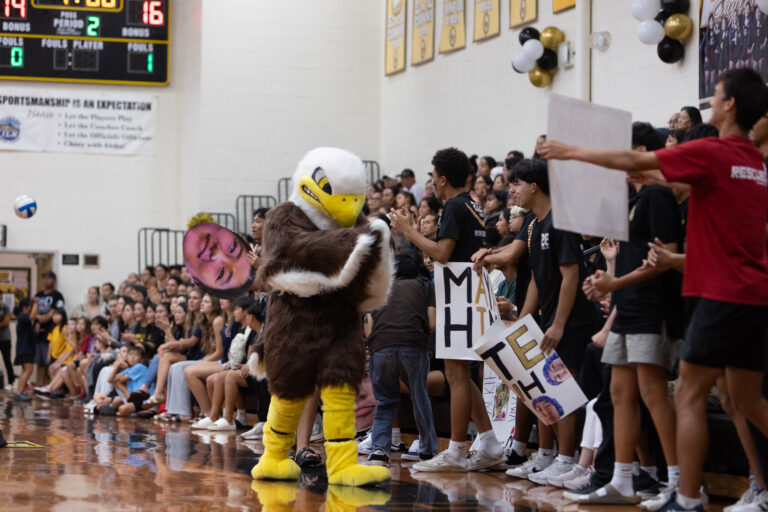Ironically, mindlessly scrolling through my For You Page on TikTok has vaulted me through a gateway of discovery in new music.
Stephen Sanchez, one of the many musical sensations recently made popular by TikTok, has caught my attention in particular. In an attempt to recreate a 1950s love song, the rising artist released a 15-second teaser snippet of his new song “Until I Found You.” I immediately fell in love with the song and decided to share it with my parents. To my surprise, they both thoroughly enjoyed it, humming along to the tune and remarking that Sanchez sounded like The Beach Boys. My parents’ positive reaction along with my own appreciation for the song caused me to realize that songs being promoted on TikTok are exceptional productions, appealing to a wide range of people and not limited to a specific age group.
The app’s ability to market the music of previously unheard-of musicians inspired me to do some research. A poll the Eagle Eye sent out to HBA students show how TikTok is consistently promoting new music via its For You page and getting overall positive reponses:

In a survey of 107 students, all except for 7 see musical artists featured on their TikTok For You Page. Of these students, 87 like some, if not all, of the songs that they hear on TikTok. From popularizing new songs like “Boyfriend” by Dove Cameron to bringing back old songs like Nelly Furtado’s 2006 “Say It Right,” the TikTok algorithm is spotlighting thousands of songs and artists, shaping what users believe is good and enjoyable music.
On the flip side, TikTok’s unrelenting promotion of music has led to listener fatigue for some of its users. Almost half of the students who took the survey believe that only some TikTok songs deserve the hype that they get. Junior Cori Matsumoto thinks that many of the viral songs on TikTok are overrated. When she heard a TikTok song on the radio, Matsumoto’s response was negative as she felt that she had already heard it too many times. Matsumoto is particularly critical of nineteen-year-old singing sensation Olivia Rodrigo, whose debut single “Drivers License” initially gained attention on TikTok, leading the singer on a pathway to Grammy-award level success. “Because her song went viral on TikTok, I actually disliked the song more than I would have if I had just listened to it on Spotify,” said Matsumoto.
Sophomore Allisha Nitta too finds that popular TikTok songs are overplayed on the app and on the radio, particularly “abcdefu” by GAYLE. In the Eagle Eye survey, a majority of students (94 out of 107) have heard the song through TikTok. Posted as an acapella challenge by TikTok user Taylor Gayle Rutherford (@gaylecantspell) in July of 2021, “abcdefu” was released as a song in August 2021. According to TikTok statistics, the song was used in 2.5 million videos. It also climbed to the #1 spot on the Billboard Global 200 in early January 2022.

Overplayed songs aside, Nitta still finds it really cool to hear a TikTok song on the radio for the first time. The sophomore’s For You Page predominantly contains video edits, many of which correlate to the song “Enemy” by Imagine Dragons. Although the alternative rock band has been in the music scene for over ten years, their latest single’s popularity on TikTok has put the band back on the map.
Similarly, one of junior Ryan Fukui’s favorite trends on TikTok is by a well-established Korean boyband. The dance to ENHYPEN’s “Polaroid Love” was created by TikTok user Reiner Acuario (@reeeiner) and has captivated millions of K-pop fans around the world.
TikTok trends also feature up-and-coming musicians’ fresh and undiscovered talent. Senior Jaelyn Mina enjoys the app’s “open-verse challenges,” where a musical artist sings the chorus of one of their own songs, leaving the verse blank and stripped of its original lyrics. With this, TikTok users from all over the world can sing a duet with the artist’s video, using their own lyrics to replace the original verse. For example, in January, rising musician Em Beihold posted an open-verse challenge to her TikTok account for her new song “Numb Little Bug.” Her challenge has gained over 300 duets, one duet amassing over 250,000 likes. Furthermore, “Numb Little Bug” accumulated an astonishing 92,000,000 and counting streams on Spotify, providing Beihold an excellent start on her musical journey. Mina believes that overall, TikTok is serving as a great platform for musicians to “not only promote and tease their music, but also to spread and grow their discovery.”
Despite the how easy it may seem for artists to become famous on TikTok, many students do not believe that TikTok can serve as a practical career choice. Preferring other social media sites like Instagram and YouTube, Fukui doesn’t think that “TikTok is going to become a real career option for most people because as time goes on, TikTok will become less popular and there will be other platforms to raise money.” Mina concurs on the idea that musicians will have a tough time making a career on TikTok alone, as the music industry tends to be dynamic and selective. Instead, Mina believes that TikTok merely acts as a good promotional platform for artists looking to market their music.
Japanese language teacher Elena Yoo, who downloaded TikTok in order to broaden her knowledge on how people communicate and maintain relevance around the world, accents Mina’s argument, understanding that influencers on TikTok don’t make as much money as those on YouTube and Instagram. While TikTok’s Creator Fund helps the app’s users to make some profit, individuals who take part in the fund only get paid between 2 and 4 cents for every 1,000 views. With this in mind, Yoo believes that an emerging musician’s ability to “succeed solely on TikTok might be questionable.” However, she thinks that using other platforms like YouTube and Spotify along with TikTok may progress an upcoming artist’s career.
On the other hand, counselor Sean Ohira shares a more optimistic perspective and believes that TikTok “definitely gives greater access and exposure to people who might not otherwise have those opportunities.” Compared to twenty years ago, where talent shows like ABC’s “American Idol” served as the exclusive platform for young adults to brandish their singing abilities, because of the internet and apps like TikTok, the people of today have greater access to express their musical gifts. “TikTok has provided a gateway for teenagers to not only pursue their God given passions, talents, and dreams in order to bless others, but also to perhaps make a living off of it,” said Ohira.
Above all, if a student told her their dreams of becoming the next superstar sensation, Yoo would encourage them to go for it. As TikTok has created an equitable playing field for teenagers and young adults to express their talents, Ohira would also push a student to follow their ambitions. “I feel like God has gifted each of us with different strengths and passions, and equips us in these ways as a means to bless others, so if they wanted to pursue music, or whatever artistic or athletic talent they had, I would fully support them in going for it, especially if they would look back on their life and regret not doing so.”







